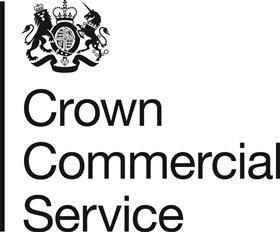The NHS spends almost £22bn on common goods and services each year. With tighter NHS budgets and resources, buying products and services is challenging. Working with Crown Commercial Service can help take some pressure off your capital projects.
Advertorial by
Nationally, NHS trusts are tapping into our buying power to access sustainable solutions for their estates and facilities to help build an NHS that is fit for the future.
The upcoming change to procurement regulation following the Procurement Act 2023 highlights the need for a clear understanding of current and future regulations.
The importance of compliance in NHS procurement
For NHS procurement teams, adherence to these regulations is not just a legal requirement; it’s essential for ensuring accountability, mitigating risks, achieving value for money and securing a better future for the communities you serve. Non-compliance can lead to serious consequences, including legal challenges against your NHS trust, financial penalties, potential damages payable to affected suppliers, and reputational damage to your organisation and the wider NHS.
Current and future regulatory landscape
The current legislation that governs procurement activity by public sector bodies in England and Wales is the Public Contracts Regulations 2015 (PCR 2015). These regulations aim to ensure that public procurement of products, goods and services is fair, transparent, and non-discriminatory.
PCR 2015 will shortly be replaced as the governing principles of UK procurement by the Procurement Act 2023. The Procurement Act 2023 was made law in October 2023 and is currently expected to go live on 24 February 2025.
However, any commercial agreement created by CCS before the go-live date for these new regulations, including any contracts awarded through those agreements will continue to operate under PCR 2015.
This means that, for a number of years, understanding how PCR 2015 works and remaining compliant with those regulations will remain vital for anyone involved in the management of those agreements and buyers using those agreements to award contracts.
Remaining compliant with PCR 2015 ensures the process can promote accountability, mitigate risks, and achieve value for money for the public sector.
Failure to comply with PCR 2015 can have significant consequences for any organisation. These include, but are not limited to legal challenges, financial penalties, and reputational damage.
Getting the most out of the procurement process
Strategic Planning
Regularly reviewing your procurement pipeline allows you to identify upcoming contract renewals or new healthcare service needs well in advance. Early engagement with CCS to explore suitable frameworks for common goods and services can help streamline your procurement process.
Clearly define your requirements
It is important for a buyer to do their research and determine exactly what they want to achieve from the procurement process and set out specific requirements. This includes defining contract durations that are suitable for the rapidly evolving healthcare landscape and incorporating any NHS-specific requirements or standards.
Know the call-off processes available
The buying process that takes place when using a framework is known as the call-off process. In simple terms, this is a set of instructions a buyer must follow when buying through an agreement that helps them carry out a compliant procurement.
For frameworks, direct award or further competition tend to be the most common buying processes available. However, the options available to a buyer depend on the agreement they decide to use for their procurement, and they are advised to check which processes are available under their chosen agreement. CCS provides buyer guidance on each of our agreements to help buyers understand the buying process available.
Public sector organisations can call-off through any CCS framework to meet their needs, and once a buying process is selected, it should be followed closely to ensure it and the resulting contract are fully compliant with PCR 2015.
The call-off process will result in a call-off contract being placed between a buyer and a supplier. This is a legally binding contract that guarantees the details of the arrangement between the two, such as the goods or services being delivered, the price of these and a delivery timeline.
Find out more
Learn about our commercial solutions to maximise your health estate by visiting our health webpage and viewing our digital brochure.


























